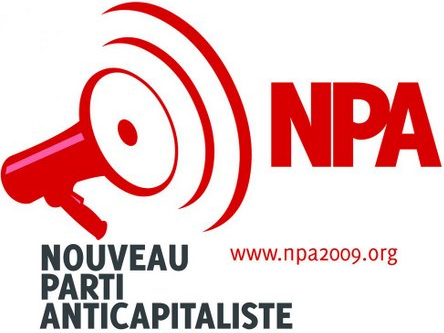The crisis is an opportunity. But for who?
Increasingly it is starting to seem that the recession, in this country at least, is going to herald yet another round of neo-liberal “reform” of the economy.
All the parties are now fessing up to the fact that the next general election is going to followed by massive public spending cuts.
Whether it is George Osborne saying that within six months an incoming Tory government will be the most unpopular since the war, or leaked government Treasury documents setting out the biggest cuts since the Callaghan government of 1977-1979, the consensus is clear.
For those that do not remember that far back, and it is a long way now, Jim Callaghan’s Labour government of the late 70s made the biggest cuts in public spending in the post-war period, and saw the biggest fall in working class living standards. Popular disillusion with his administration opened the door to Thatcherism in 1979.
But behind all the talk of the necessity of cuts to balance the government’s books lurks something far more insidious, and far more dangerous.
It’s something you’ll hear more of as it spreads out from the think tanks and the Westminster bubble into public debate, as both parties seek to fashion it into a political idea that gain support, something an agenda of cuts alone cannot do.
It’s about the state, and what it can do.
The answer all around seems to be less, for less people and for less money.
Less services, less state
The call by the CBI for students to pay more towards their education, which is hardly free any more, is just a start.
Local government executives have already been putting their plans in place. Budgets are going to be slashed. But how will they provide services on less money?
The answer is procurement.
Procurement?
It means everything goes out tender, everything is privatised.
Any service you can think of, the private sector (and its increasingly indistinguishable cousin the “voluntary sector”) will do it cheaper.
And cheapness will be the watchword.
Already local government contracts put out to tender are competed for ruthlessly. Wages and conditions have been cut and cut again.
Whole swathes of the state will be farmed out. The very idea of public service and state provision will come under enormous attack.
This death by a thousand tenders will also mean the last great bastion of union power, the public sector, will be broken up.
Anyone who works in the privatised public services, or the voluntary sector, will be familiar with what happens next: the breaking up of collective agreements, performance related pay, casualisation, the withering of union organisation and a gradual acceptance by workers of the vagaries of a labour market heavily weighted against them.
The political justification will be to “shrink the state” to give people freedom, “a new birth” of social voluntarism and philanthropy.
End of the welfare state?
Such an assault on the public sector will also herald a new round of tax cuts, to “give power” to people to decide how to spend their money.
It is a drive that could have a popular resonance. In a situation where wages are going down, and collective action to push them up seems like non-starter (or doesn’t even cross some people’s minds) the only way to increase income is to cut taxes.
And this has a logic all of its own. A logic that could lead to the dismantling of the welfare state in ways not yet imagined even by the outriders of neo-liberalism.
The fact that public services will be retreating will force more and more people to pay for things themselves, from private health insurance to supporting their children through higher education. Even the most well meaning, and public minded people will increasingly have to make hard economic choices.
The growing assault on the “universal provision” of the welfare state is a massive step in that direction.
The idea that help should only focussed on those “most needy” rather than be available to all, tends to undermine support amongst those who pay for it through their taxes.
This is what happened in the US in the eighties. The dismantling of what welfare provision there was reached tipping point where the consensus at the ballot box for it collapsed.
Millions who now had no recourse to the services of the state, and having to pay for such services themselves, became unwilling to pay for welfare through their taxes. The assault started with things like Proposition 13 in California restricting property taxation. Ever since in election after election, in one ballot initiative after another, measures have been passed cutting public provision and limiting taxation.
Who’d have thought it? A year ago it seemed like the collapse of the neo-liberal experiment was at hand. Instead we could be facing a turn to an even more extreme type of neo-liberalism.
Stop the attack or turn the tide
A turn that could be the coup de grace for what has been exposed by the last eighteen months of recession as a directionless and decaying trade union movement, which seems incapable of defending its members from pay cuts and redundancies.
Yet every crisis is also an opportunity. The crisis of their system does mean that the tide can be turned. But only if there is an attempt to turn it, not just to stop it.
A political alterative to their system has to be put, and a way found to communicate it to the mass of the working class, rather than just seeking to defend sections of it piecemeal.
This is the task that faces us.








